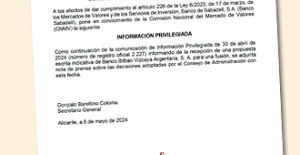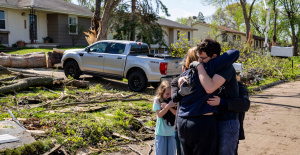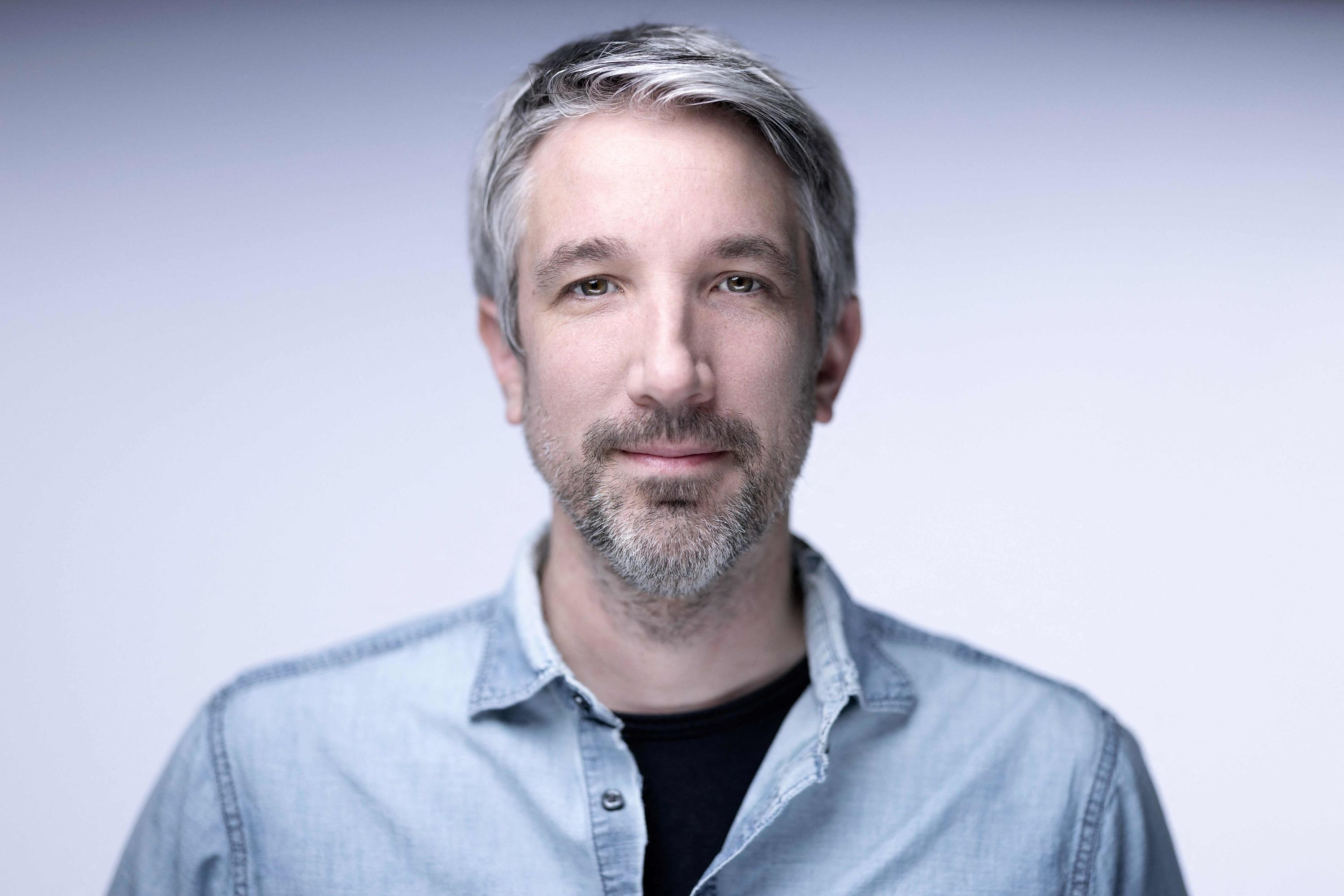Should the dangers of nuclear armament be discussed in schools? The members of the Hessian state parliament are arguing bitterly about this question. Because the Frankfurt city administration has had a brochure with the conference report of the “European Congress Against Nuclear Armament” distributed at its municipal educational institutions. The SPD mayor of the city is responsible, who, in addition to his local political office, also chairs the regional committee "Fight nuclear death". According to the CDU parliamentary group in the state parliament, however, the students "must be given the opportunity to come to an objective decision and form an opinion". That cannot be achieved with “one-sided material”.
This scene does not take place in 2022 in the context of the vague nuclear threats from Moscow towards Germany. Nor did it play at the height of the debate about the NATO double-track decision from 1979 to 1981, when millions of people roamed the streets and squares to indirectly demonstrate Soviet superiority in nuclear weapons. But in November 1959; WORLD reported at the time.
"There is a fixed expression that is used even in English-speaking countries: the 'German Angst'. It refers to apparently specifically German uncertainties and concerns regarding crisis situations and security issues," writes historian Cornelia Juliane Grosse in the new issue of the journal "Military History" published by the Center for Military History and Social Sciences of the Bundeswehr in Potsdam (ZMSBw). And she adds: "During the Cold War, this 'German fear' referred in particular to an impending nuclear war."
And not even unfounded. The NATO exercise "Carte Blanche" in June 1955 had played out what could happen in the event of a Soviet attack on Western Europe - which could be feared at any time. The result, according to Grosse: Within six days, 268 atomic bombs could (have to) be dropped on the territory of the Federal Republic. 1.7 million dead and 3.7 million injured were expected during this period. The next major NATO exercise, "Lion Noir" in 1957, confirmed the assumption that the majority of nuclear weapons falling on West German targets would not be fired by Soviet but by NATO forces.
According to the historian, the reason was “that at that time NATO did not have nearly enough conventional troops and weapons in Western Europe to be able to stop a Soviet attack”. In any case, the western alliance was planning a line of defense against the attack from the east on the Rhine and IJssel at the earliest: in this realistic scenario, the territory of western Germany was primarily a battlefield.
Although these two NATO and other exercises clearly showed what catastrophic consequences an actual war in Central Europe would have for the Germans in particular and that the (nuclear) deterrence of the Eastern bloc must therefore have top priority, an opposing movement arose in the Federal Republic. In 1957/58, under the name "Kampf dem Atom", it was the first heyday of "German Angst" and also caused the heated debate in the Hessian state parliament.
The "Göttingen Manifesto" of April 12, 1957 made a significant contribution to this. In it, 18 renowned nuclear researchers warned of the "life-killing effect" of nuclear weapons, for which "no natural limit is known". Even the nuclear bombs in place "today", i.e. in the spring of 1957, could "probably wipe out the population of the Federal Republic today". They argued that the Federal Republic should therefore expressly and voluntarily renounce the possession of nuclear weapons of any kind.
Werner Heisenberg and Carl Friedrich von Weizsäcker were also among the signatories, both of whom had played a key role in the Army Weapons Office’s “Uranium Association” from 1942 – whether they were deliberately delaying the development of a German nuclear weapon (as they themselves claimed) or simply didn’t understand the principle had, could never be clarified. As early as 1957, the motto "Follow the Science" was at least questionable.
At the same time, German fears of a nuclear war were used to downplay the threat from the East. The slogan "Better red than dead" was already being used back then - Federal Chancellor Konrad Adenauer said at a meeting of the CDU federal executive committee on May 11, 1957: "There are people who take the position: 'Rather red than dead'. That's what they say people you never thought possible; fear is on their necks at the moment. They say: 'We would rather endure years of bondage than have us and our children and grandchildren be exterminated.'"
The chancellor, as clear-eyed as most of the time, judged: "The nonsensical thing about it is that the voluntary submission of the German people, through the abandonment of Europe, will not end the conflict between the United States and Soviet Russia at all."
The "fight against nuclear death" demonstrations soon died down again in 1958 after the USA had made it clear that they would not equip the Bundeswehr with nuclear weapons. But the “subliminal fears remained,” writes Cornelia Juliane Grosse: “The connection between the catastrophic experience of the past (namely the bombing of most German cities in World War II; ed.) and the apocalyptic expectation of the future shaped the fearful interpretations of the present by Germans in the cold War."
So it became a task to bring the concept of nuclear deterrence closer to the Germans. But the "need to allay nuclear fears created an almost insoluble contradiction." It could never be solved even in the 21st century - there are still (occasionally) protests against US nuclear weapons on German soil, even if there are now just under two dozen bombs on the Büchel air base in Rhineland-Palatinate.
Today, Putin's Russia cleverly plays with these German fears. Shortly before the start of the war of conquest against Ukraine, potential targets for nuclear strikes in Germany were named in open, naturally intercepted radio messages from the Russian Navy, namely Büchel, Berlin and the US base in Ramstein. Apparently, many Germans still don't understand the basic principle of deterrence - because of their fears.
You can also find "World History" on Facebook. We are happy about a like.

 Sabadell rejects the merger with BBVA and will fight to remain alone
Sabadell rejects the merger with BBVA and will fight to remain alone In Germany, the far left wants to cap the price of “doner kebabs”
In Germany, the far left wants to cap the price of “doner kebabs” Israel-Hamas war: Gaza between hope of truce and fear of Israeli offensive in the South
Israel-Hamas war: Gaza between hope of truce and fear of Israeli offensive in the South “Mom, Dad, please don’t die”: in the United States, a nine-year-old child saves the lives of his parents injured in a tornado
“Mom, Dad, please don’t die”: in the United States, a nine-year-old child saves the lives of his parents injured in a tornado The presence of blood in the urine, a warning sign of bladder cancer
The presence of blood in the urine, a warning sign of bladder cancer A baby whose mother smoked during pregnancy will age more quickly
A baby whose mother smoked during pregnancy will age more quickly The euro zone economy grows in April at its best pace in almost a year but inflationary pressure increases
The euro zone economy grows in April at its best pace in almost a year but inflationary pressure increases Children born thanks to PMA do not have more cancers than others
Children born thanks to PMA do not have more cancers than others “House of the Dragon”, “Succession”… Max, the new streaming platform from HBO and Discovery, launched in France on June 11
“House of the Dragon”, “Succession”… Max, the new streaming platform from HBO and Discovery, launched in France on June 11 The A13 motorway will finally reopen this Friday, in one direction only
The A13 motorway will finally reopen this Friday, in one direction only TNT commission of inquiry: tensions between LFI deputies and Macronists before the vote on the report
TNT commission of inquiry: tensions between LFI deputies and Macronists before the vote on the report Apple unveils a new, more efficient iPad range
Apple unveils a new, more efficient iPad range The Gaza War invites itself to the 2024 Pulitzer Prizes
The Gaza War invites itself to the 2024 Pulitzer Prizes Judith Godrèche presents a short film on sexual violence in Cannes
Judith Godrèche presents a short film on sexual violence in Cannes Kevin Spacey: new trial in sight in London for the American actor, for sexual assault
Kevin Spacey: new trial in sight in London for the American actor, for sexual assault Taylor Swift fans make London pub Black Dog their new place of pilgrimage
Taylor Swift fans make London pub Black Dog their new place of pilgrimage Omoda 7, another Chinese car that could be manufactured in Spain
Omoda 7, another Chinese car that could be manufactured in Spain BYD chooses CA Auto Bank as financial partner in Spain
BYD chooses CA Auto Bank as financial partner in Spain Tesla and Baidu sign key agreement to boost development of autonomous driving
Tesla and Baidu sign key agreement to boost development of autonomous driving Skoda Kodiaq 2024: a 'beast' plug-in hybrid SUV
Skoda Kodiaq 2024: a 'beast' plug-in hybrid SUV The home mortgage firm rises 3.8% in February and the average interest moderates to 3.33%
The home mortgage firm rises 3.8% in February and the average interest moderates to 3.33% This is how housing prices have changed in Spain in the last decade
This is how housing prices have changed in Spain in the last decade The home mortgage firm drops 10% in January and interest soars to 3.46%
The home mortgage firm drops 10% in January and interest soars to 3.46% The jewel of the Rocío de Nagüeles urbanization: a dream villa in Marbella
The jewel of the Rocío de Nagüeles urbanization: a dream villa in Marbella Institutions: senators want to restore the accumulation of mandates and put an end to the automatic presence of ex-presidents on the Constitutional Council
Institutions: senators want to restore the accumulation of mandates and put an end to the automatic presence of ex-presidents on the Constitutional Council Europeans: David Lisnard expresses his “essential and vital” support for François-Xavier Bellamy
Europeans: David Lisnard expresses his “essential and vital” support for François-Xavier Bellamy Facing Jordan Bardella, the popularity match turns to Gabriel Attal’s advantage
Facing Jordan Bardella, the popularity match turns to Gabriel Attal’s advantage Europeans: a senior official on the National Rally list
Europeans: a senior official on the National Rally list These French cities that will boycott the World Cup in Qatar
These French cities that will boycott the World Cup in Qatar “The future is for us”: “disappointed” and “proud” at the same time, Al-Khelaïfi sees the glass half full after the elimination of PSG
“The future is for us”: “disappointed” and “proud” at the same time, Al-Khelaïfi sees the glass half full after the elimination of PSG PSG: “Since January, these have not been my best matches,” agrees Zaire-Emery, who promises to “come back stronger”
PSG: “Since January, these have not been my best matches,” agrees Zaire-Emery, who promises to “come back stronger” “What is this question, honestly?” : Nasser Al-Khelaïfi (very) annoyed after PSG-Dortmund
“What is this question, honestly?” : Nasser Al-Khelaïfi (very) annoyed after PSG-Dortmund “I am the guy who has to score the goals”: Mbappé does not hide and assumes responsibility after PSG’s exit
“I am the guy who has to score the goals”: Mbappé does not hide and assumes responsibility after PSG’s exit


















